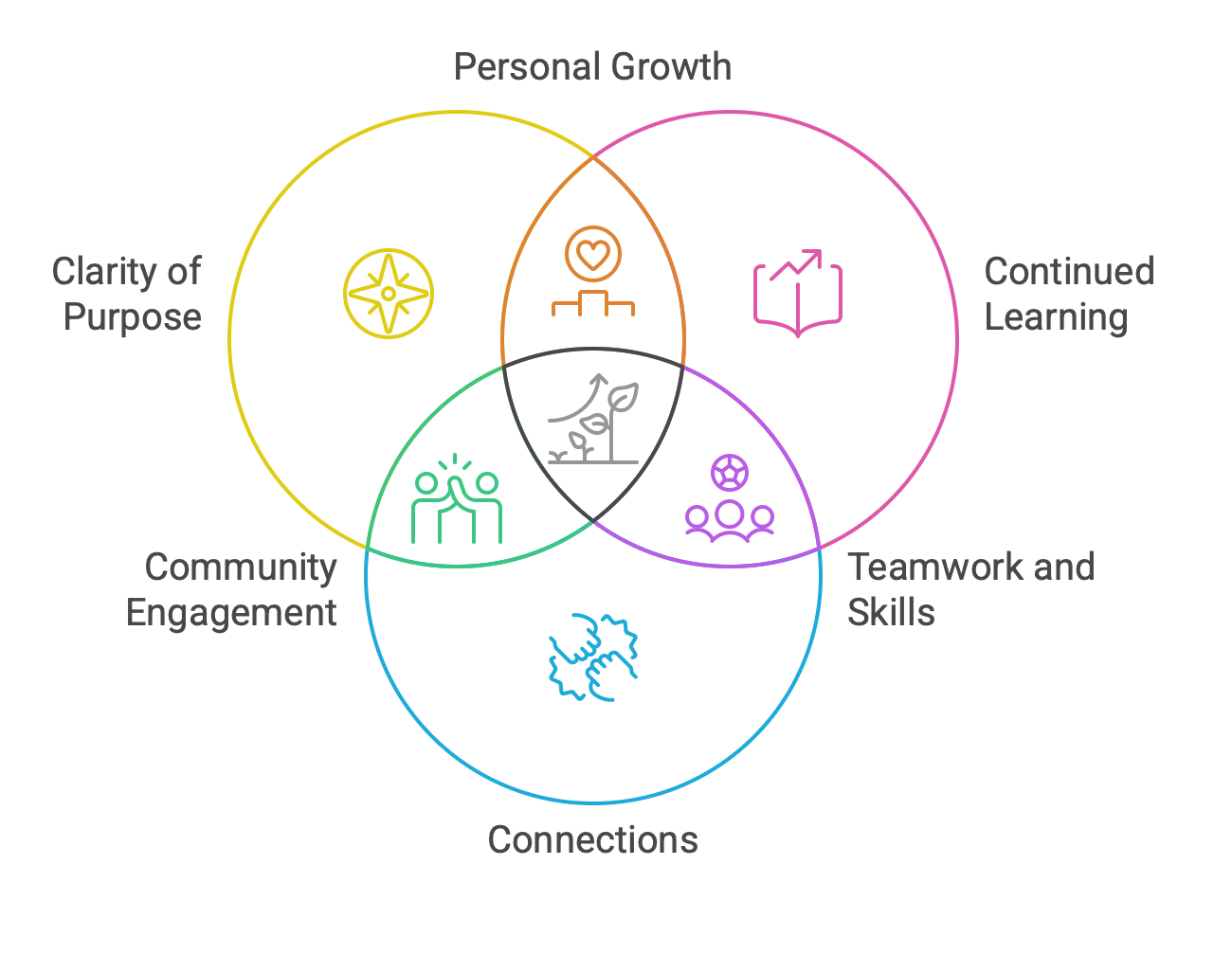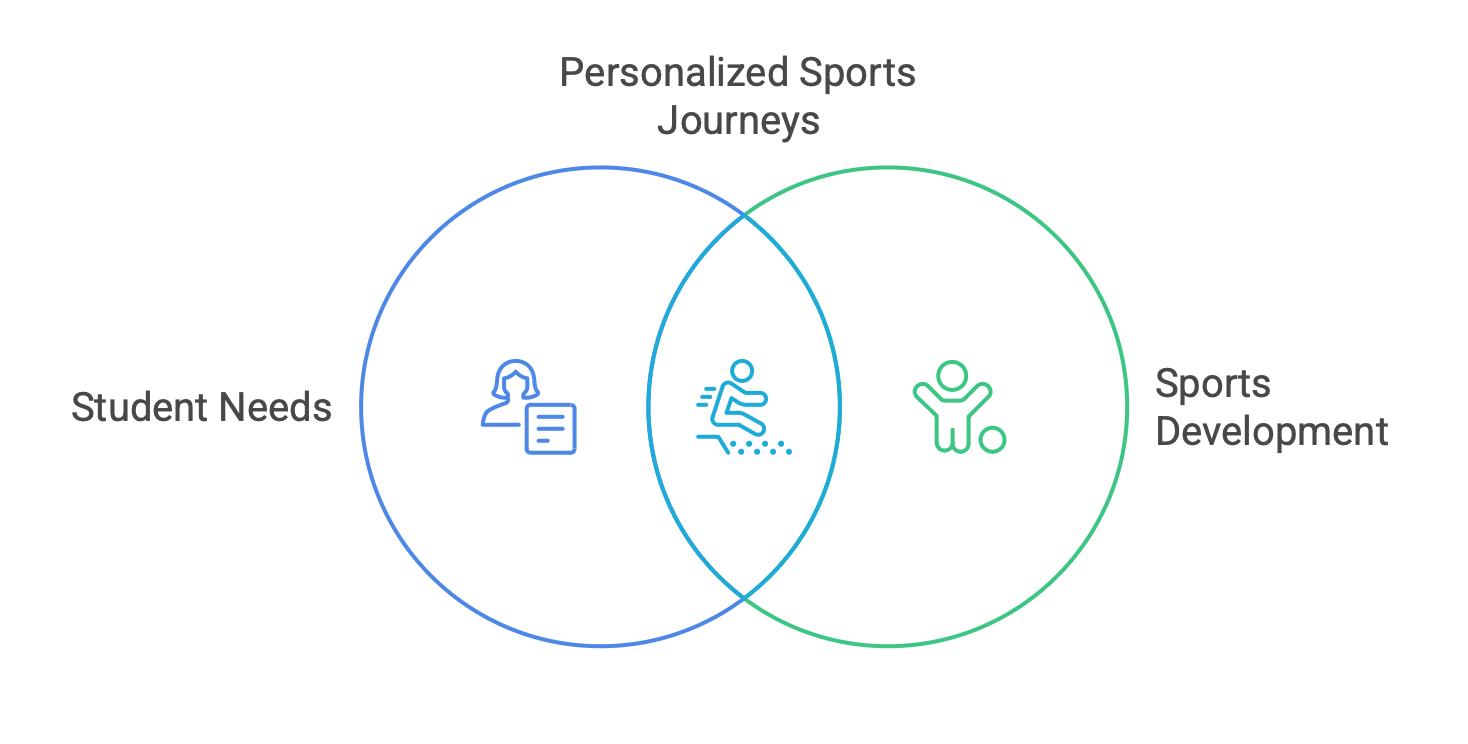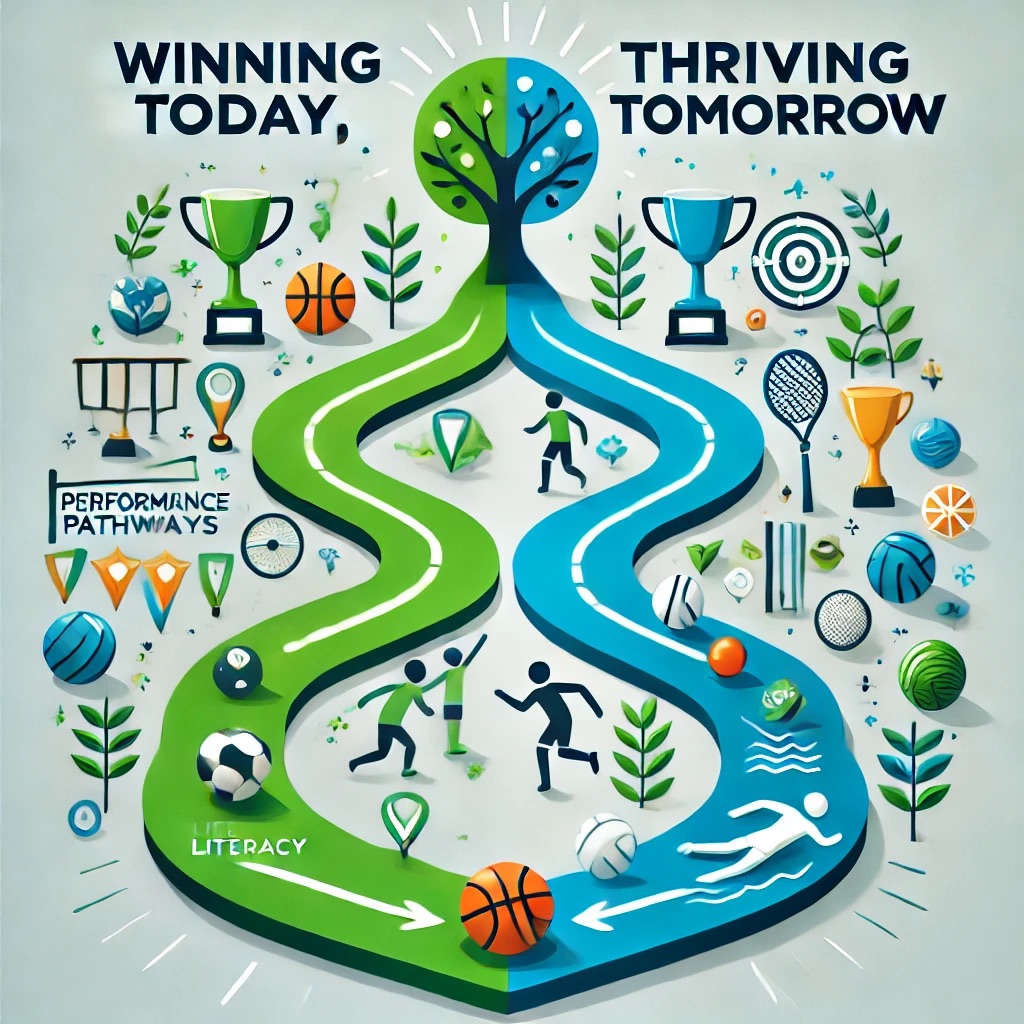Winning Today, Thriving Tomorrow: The School Sport Journey
Cath Bishop’s influential book, 'The Long Win' challenges the conventional focus on short-term victories, advocating for a broader perspective that aligns perfectly with the goals of school sport. The philosophy calls for a deeper understanding of success, one that emphasizes the long-term development of students rather than immediate wins. This perspective resonates profoundly within school sports, where the ultimate goal is not merely to win today but to cultivate the physical literacy, resilience, and personal growth necessary for a lifetime of health and activity. The balance between short wins and the long win is vital, with each serving as essential ingredients in shaping a meaningful and enduring relationship with sport.
Beyond Trophies: The True Value of School Sport
The Long Win emphasizes three pillars: clarity of purpose, constant learning, and connections with others. In a school sports context, this means moving beyond winning games or collecting trophies to a deeper focus on:
Clarity of Purpose: Why do we play? To inspire young people to enjoy movement, develop skills, and grow as individuals.
Continued Learning: How do we grow? Through incremental improvements, understanding setbacks, and developing not just physical skills but life skills such as teamwork and perseverance.
Connections: Who do we do it with? Building strong, supportive communities within teams and schools.

These pillars align with the Long-Term Athlete Development (LTAD) framework, which encourages progressive, age-appropriate skill development tailored to the individual’s stage of growth. The LTAD’s focus on fostering fundamental movement skills and physical literacy ensures that sport becomes a lifelong pursuit, not just a fleeting phase. This focus on development mirrors The Long Win’s call for continuous learning and improvement, highlighting the importance of fostering skills and resilience in students, not just through competition but through holistic growth.
Early Specialisation: A Barrier to the Long Win
Martin Brockman recently spoke to parents at my school and highlighted the risks associated with early specialisation in youth sports. While early specialisation, focusing on a single sport from a young age, may lead to short-term gains, research consistently shows that it can hinder long-term development. Studies of Olympians reveal that the majority participated in multiple sports during their formative years, developing a broad base of physical skills, resilience, and adaptability before specialising later in their careers.
Early specialisation often increases the risk of burnout, overuse injuries, and decreased motivation. By contrast, a diversified approach aligns with the LTAD framework’s emphasis on physical literacy and multi-sport participation. This approach not only enhances athletic performance but also fosters a lifelong love of movement—a critical component of the long win.
The Role of Physical Literacy
Physical literacy—the relationship with movement and physical activity—is the foundation for lifelong engagement in sport. It underpins students’ ability to explore diverse activities, feel competent in their abilities, and enjoy movement. Developing physical literacy isn’t just about creating future athletes; it’s about empowering students to live healthy, active lives.
Physical literacy must be central to the long win in school sports. It provides the foundation for children to engage in diverse activities and enjoy movement. It’s not just about creating athletes; it’s about fostering well-rounded individuals who can enjoy a lifetime of physical activity.
Short wins, such as learning to dribble a basketball, mastering a swim stroke, or winning a local match, are crucial steps in this journey. They build confidence, teach goal-setting, and create moments of joy that spark intrinsic motivation. However, these short wins should be framed as stepping stones rather than endpoints, reinforcing a growth mindset and the understanding that progress is a lifelong endeavor.
Short Wins as Catalysts for Growth
Short wins play an essential role in the long win. They provide tangible milestones that keep students engaged and motivated. For example, celebrating a student’s first successful free throw in basketball or their first 25-metre swim can light the spark of self-belief. These small successes help students understand that progress, no matter how incremental, is valuable.
However, it’s important to ensure these moments are seen in the context of a larger journey. As a Director of Sport, I see how easy it could be to focus on short wins for marketing gains or immediate validation through match results and trophies. While these are important for building excitement and pride, they must never overshadow the deeper, long-term goals of school sport.
The role of a Director of Sport is inherently a long-term project. It involves setting a vision that extends beyond individual games or seasons. My responsibility lies in creating an environment where students develop the skills, values, and habits that will serve them throughout their lives. This requires patience, a commitment to ongoing improvement, and a focus on the individual needs of each student.
The Individual Journey
Every student’s journey in sport is unique. One of the key lessons from The Long Win and the LTAD framework is the importance of recognising and nurturing individual potential. A one-size-fits-all approach rarely works; instead, we must tailor experiences to suit each student’s needs, abilities, and aspirations.
For example:
Encouraging a naturally athletic student to refine their skills for competitive play.
Supporting a less confident student in discovering the joy of participation.
Providing opportunities for all students to connect with their peers through their PE curriculum.
Every student’s journey is different, and it’s essential that we provide opportunities that match their unique needs and aspirations.

Conclusion: A Vision for Lifelong Engagement
The long win in school sports is about more than just games and medals; it’s about equipping young people with the skills, mindset, and passion to lead active, fulfilling lives. By embracing both the short wins that spark joy and the long-term vision that sustains growth, we can create a culture where every student feels empowered to thrive in sport and beyond.
How do you currently balance short-term success with long-term development in your school sports program? What steps can you take today to shift the focus from short-term results to long-term success?
— Anna Sheppard, Director of Sport at King's College, Bangkok
Share this post
Get fresh insights and articles straight to your inbox
By subscribing you agree to our privacy policy.



Comments
You must be signed in to comment